How to Move to Australia from the UK
Everything you need to know if you're moving from the UK to Australia.

Table of Contents
Moving to Australia is a popular possibility for United Kingdom (UK) residents. Brits seeking a high standard of living, job opportunities and, of course, the warmer climate have always flocked to the land down under. In 2020, over 7.6 million migrants were living in Australia and the United Kingdom represented the largest group, with 980,400 from England alone.
Australia’s international borders have been closed since March 2020 to prevent the spread of Covid-19. The exact date of their full re-opening remains uncertain, but certain skilled migrant visas are still being processed, allowing UK citizens experienced in these occupations the chance to move to Australia.
Between visas, lockdowns and sponsorships, there’s a lot to learn when you’re researching how to move to Australia from the UK. In this post we’ll provide a comprehensive guide to visas, finding a job, cost of living and the best places to live. As well as suggestions to help you get started in your new home if you’re thinking of moving to Australia from the UK.
Before we get into the details, it’s worth noting that when it’s time for you to make the move, CurrencyFair can save you money on transfer fees and bank charges when you transfer money to Australia from the UK. CurrencyFair is fully licensed and regulated and allows you to send and receive money to over 150 countries at exchange rates up to eight times cheaper than the banks.
English people have made up the majority of Australia’s immigrants since 1788 when New South Wales was established by the British government as a penal colony. 100,000 British convicts were transported to Eastern Australia between then and 1852. Seduced by the gold rush in Victoria in the 1850s, over 600,000 more people travelled to Australia to seek their fortunes, with 81% coming from the United Kingdom, 10% from Europe and 7% from China.
After World War II, Australia’s Prime Minister established the federal Department of Immigration to administer a large-scale immigration program. Arthur Calwell, Australia’s first Minister for Immigration, wanted, “nine out of ten new immigrants to be British”.
Roughly 4.2 million immigrants arrived between 1945 and 1985, with around 40% arriving from Britain and Ireland. In 2020, according to the Australian Bureau of Statistics, 30% of Australia's resident population were born overseas and those born in England continue to be the largest group.
Why do British expats move to Australia?
When choosing a destination for your expat adventures, Australia is high on most Brits' list, but why? We look into the benefits of an Antipodean lifestyle!
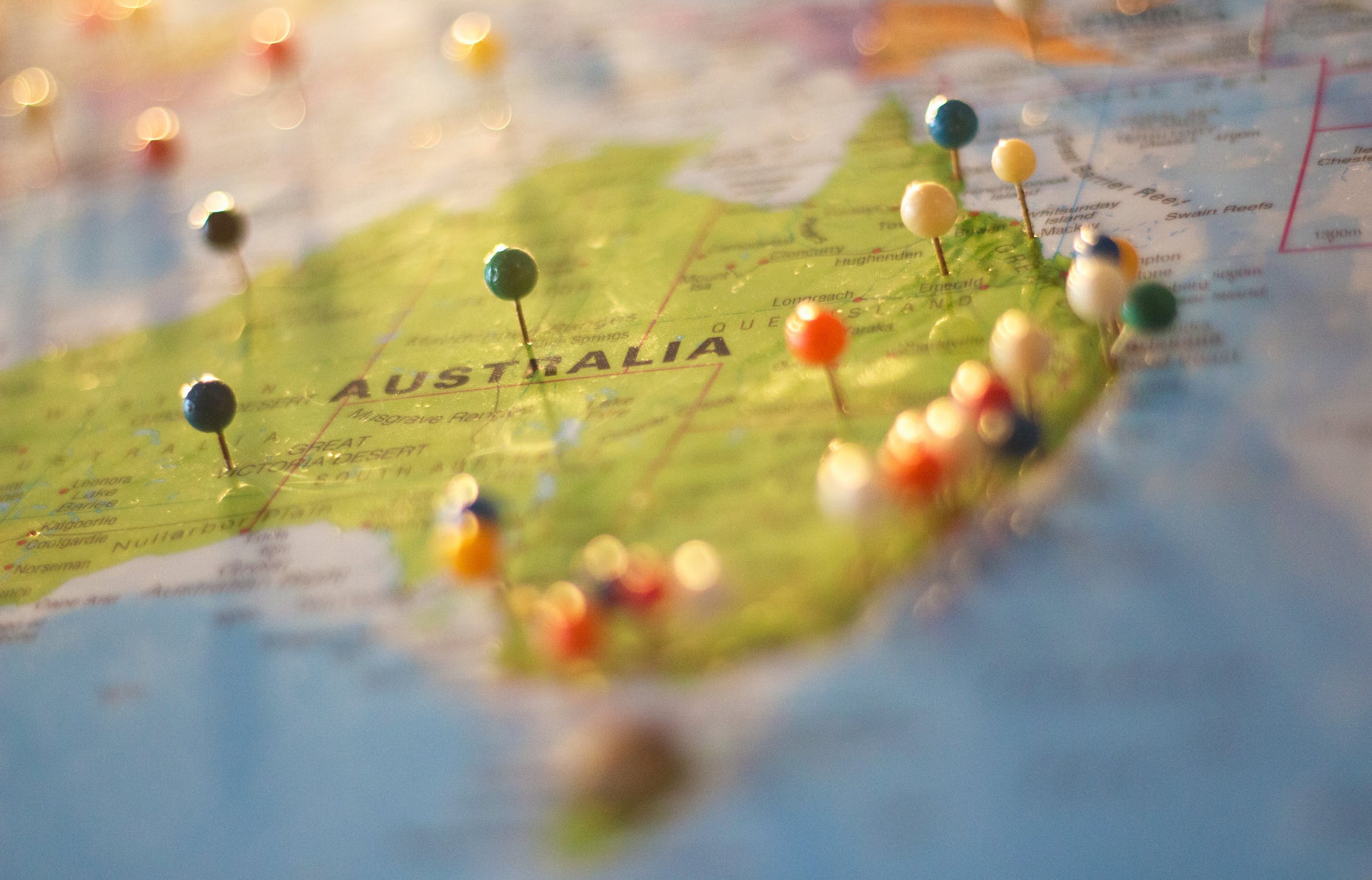
Australia is the sixth-largest country in the world and is divided into six states and two territories. As the centre of Australia is mostly desert, 90% of the population is concentrated in the cities and urban areas along the coast. The capital city is not Sydney or Melbourne, but Canberra — remember that little fact for your next pub quiz. Here are a few other quick stats about Australia to note:
-
Currency: Australian Dollar (AUD). Check how much AUD you’ll get for your GBP on CurrencyFair’s calculator here.
-
Main language: English.
-
Population: approx. 25.7 million.
-
Average weekly earnings: AUD$ 1,737.10.
-
Most popular cities for expats: Sydney, Melbourne, Perth and Adelaide.
Check out our comparison of money transfer companies available in Australia to see how CurrencyFair compares in terms of transfer fees, exchange rates and delivery times: Money transfer companies compared: Australia (2021).
While moving to Australia from the UK may seem like a dream come true, it’s still a major move that requires planning and research. Like anything, expatriate (expat) life in Australia has its pros and cons, so it’s worth doing your research to know what to expect and mitigate disappointment. Here are some of the positives and negatives of life in Oz to consider before moving:
Pros of moving to Australia from the UK
-
High quality of life.
-
Good public and private healthcare.
-
High minimum wage and standard of living.
-
Warm, sunny weather and outdoor lifestyle.
-
Diverse climate with exciting travel opportunities.
-
Relatively easy to obtain permanent residency and citizenship.
16 things to investigate before moving to Australia
Moving to Australia with children or alone, is complex with visa rules and school fees, it's often harder than people think. Click here for a few tips.
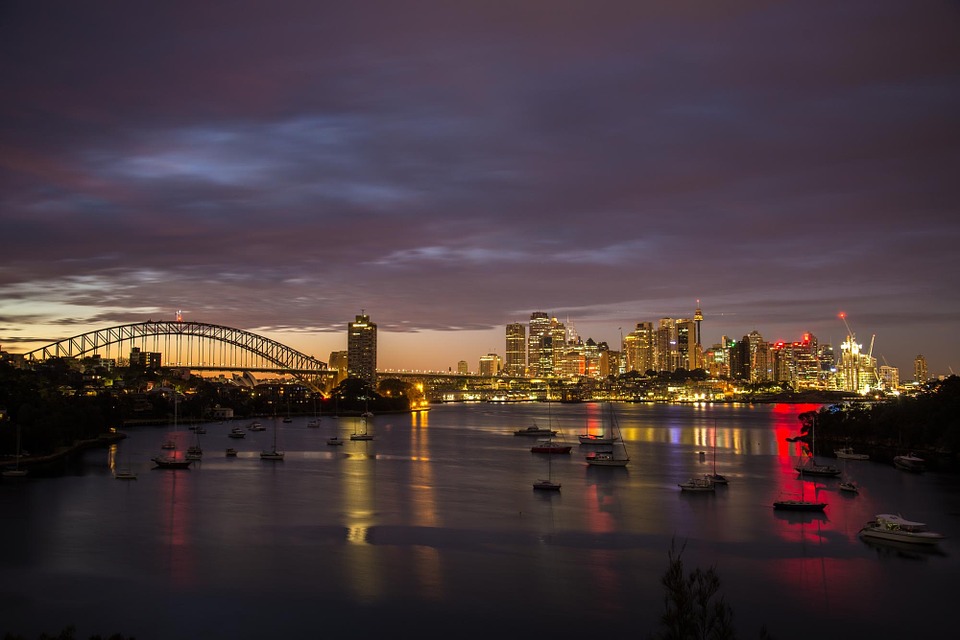
Cons of moving to Australia from the UK
-
Property is expensive and real estate law favours the seller.
-
Food and utilities are expensive.
-
Private healthcare is generally expensive and may be a condition of your visa.
-
Private schooling and fees for international students can be expensive.
-
Transport between states can be time-consuming and expensive given the size of the country.
-
The closure of international borders due to Covid-19 makes it difficult to move there for many people.
7 things you will miss as a British expat abroad
We look at the 7 things British expats miss about the UK when they move overseas for work, travel adventures or to start a new life abroad.
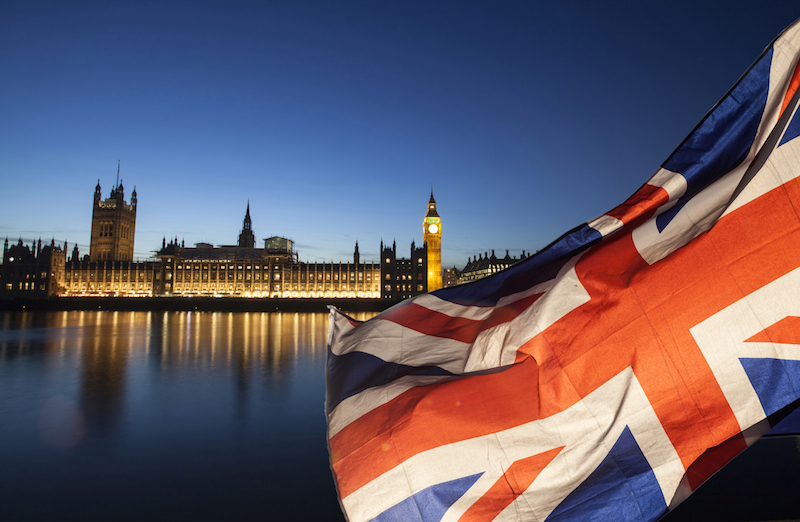
Here we will outline essential information for British citizens thinking of moving to Australia from the UK, with details on residence requirements, visas, cost of living and healthcare. While Australia’s borders are currently closed to prevent the spread of Covid-19, there are some exemptions in place.
Moving to Australia in 2021: the impact of Covid-19
As of October 2021, Australia’s borders remain closed. There are certain exemptions in place, and travellers who meet exemption criteria or have a “compassionate or compelling reason” to enter Australia can apply to the Australian authorities for an exemption. You need to apply for an exemption at least two weeks, but not more than two months, before your planned travel and you can find the full list of individual exemptions on the Australian government’s official Covid-19 website.
However, you may want to use this time to plan your future move to Australia and research the visas and requirements you will need if and when international travel reopens. Due to Covid-19, travel advice is subject to rapid change. As such you should check the UK and Australian government websites for the latest updates relating to travel restrictions and requirements.
There are several visa types available for British citizens to travel, live and work in Australia. We’ll outline the details of some of the visas available for working holidays, moving to Australia to study, and moving to Australia to work short and long-term. For more information on all the visa types available, the Australian government has created a handy website.
It’s worth noting that this is by no means an exhaustive list, as Australia has many different types of visas and detailed rules about eligible skilled occupations.
Working holiday visas in Australia for British citizens:
-
First Working Holiday visa (subclass 417). Available to British citizens aged 18 to 30 years. It allows successful applicants to travel and work in Australia for up to 12 months. This is a popular option with British citizens that want to sample life abroad and move to Australia for a year. Cost: AU$495.
-
Second Working Holiday visa (subclass 417). Available to British citizens aged 18 to 30 years who have previously held a Working Holiday visa and have completed three months of specified subclass 417 work, for example, fishing, tree farming, bushfire recovery work, construction or plant and animal cultivation. This allows you to extend your time in Australia. Cost: AU$495.
-
Third Working Holiday visa (subclass 417). Available to British citizens aged 18 to 30 years who have previously held a Second Working Holiday visa and have completed six months of specified subclass 417 work. Cost: AU$495.
Student visas in Australia for British citizens:
-
Student visa (Subclass 500). Available to British citizens aged six years or older. It allows successful applicants, who must be enrolled in a full-time course at a recognised educational institution, to stay in Australia for the duration of their course up to a total period of five years. Cost: from AU$630.
Working visas in Australia for British citizens:
-
Temporary Skill Shortage visa (subclass 482). This is available to British citizens if they have an approved sponsor and have been nominated for the visa, and enables them to stay for up to four years. Cost: from AU$1,290. Similar visas exist for people that are getting sponsored by a state or territory government and come with further conditions. Find the full list here.
-
Skilled Independent visa (subclass 189). This visa is for skilled workers and allows successful applicants to become Australian citizens with permanent residence. For this visa, you must be experienced in an occupation on the skilled occupation list, have passed a point test with at least 65 points, and pass other eligibility requirements to submit an expression of interest before getting an invitation from the Australian government to apply. Find the full step-by-step guide to apply for this visa here.
According to Expatistan, a cost of living calculator that allows you to compare the cost of living between cities around the world, the cost of living in Australia can be cheaper than that of life in Britain. A cheaper lifestyle is a major financial advantage when moving abroad, allowing someone planning to emigrate to Australia the chance to earn a good salary while spending less.
When planning a move to Australia, professional expats are often drawn to the four largest cities - Sydney, Melbourne, Brisbane or Perth. In 2019, Mercer, an American asset management firm, published a survey ranking the quality of living in 231 cities around the world. Australian cities ranked highly, with Sydney and Melbourne placed at 11th and 17th respectively. Perth followed in 21st place, with Brisbane slightly further down the list in 35th place. Furthermore, all of Australia’s major cities rank within the top 50 for safety.
Healthcare in Britain is considered to be one of the best in the world, and you can expect an even higher standard of care in Australia. A comparison published by an American healthcare advocacy group, the Commonwealth Foundation, scored 11 wealthy countries in five categories: access to healthcare, care process, administrative efficiency, equity and health care outcomes.
Britain's National Health Service (NHS) was in the top three when results were published in 2017 but had slipped to 4th place in the comparison published in 2021. The top-performing countries overall are Norway, the Netherlands and (drum roll, please) Australia.
Healthcare in Australia is available on a public and private basis. Australia's public health system, Medicare, is tax-funded. It’s available to British citizens thanks to a reciprocal healthcare agreement with Australia and provides essential treatment in public hospitals, doctors appointments and medicine for free or for a substantially reduced cost.
To be eligible for Medicare, you must have been living in the UK before arriving in Australia and you’ll need to enrol using the steps outlined on the Australian government website here to get services and payments.
There are certain services not covered by Medicare, including ambulance services, treatment in private hospitals, dental care, most physiotherapy, audiology, and ophthalmology and home nursing. Partially due to this, many Australians opt for a combination of public and private healthcare to avoid long wait times for non-urgent procedures and access to services that Medicare does not cover. 53% of Australians have some form of private health insurance compared to just 11% of UK residents. So, depending on your personal preferences and situation, you may wish to look into private healthcare during your time in Australia.
You will need a visa to work in Australia from the UK. For those that don’t have an Australian partner, the skilled migration visa is the most popular option. Because of this, and restrictions relating to Covid-19 lockdowns, it’s never been more challenging to acquire a skilled migration visa in Australia.
However, if your occupation is listed on the Priority Migration Skilled Occupation List, you may have a greater chance of getting a visa. This temporary list identifies occupations that fill critical skills needed to support Australia’s economic recovery from Covid-19, including medical, technological and financial positions. We’ve also rounded up 15 of the best international recruitment agencies in Australia here.
When you leave the UK to move to Australia, you need to inform HM Revenue and Customs (HMRC) if you’re going to work abroad full-time for at least one full tax year, or if you’re planning to leave permanently. You’ll find the forms you need to fill in here on the UK government website. If you need to pay tax on your foreign income in another currency while you’re abroad, once you have your Australian bank account set up CurrencyFair’s lower-margin FX rates offer bigger savings on overseas money transfers. Learn more here about using CurrencyFair to pay tax overseas.
In Australia, the income you pay tax on depends on your residency for tax purposes. According to the Australian Tax Office (ATO) standards, an individual doesn’t necessarily have to be an Australian citizen or live in the country permanently to be considered a resident for tax purposes. Instead, various residency tests are used to decide if and how a person should be taxed in Australia, and these dictate the level of liability.
According to the ATO’s criteria, an individual is generally considered an Australian resident for tax purposes if they:
-
have always lived in Australia, or have come to Australia to live permanently.
-
have been in Australia continuously for six months or more, working in one job and living at the same place for the majority of that time.
-
have been in Australia for more than six months of the year, unless their usual home is overseas and they don’t intend to live in Australia permanently.
-
go overseas temporarily and do not establish a permanent home in another country.
-
are on a student visa in Australia, enrolled in a course that is more than six months long.
If you aren’t sure whether or not you fit these criteria, you can consult a range of published guidance on the ATO website, including a helpful “Are you a resident?” decision tool.
Opening a bank account in Australia is generally an easy process. This article compares five Australian banks for people moving to Australia. Usually, Australian banks require a 100-point check – which means that to open a bank account you must supply documentation that has a total point value equalling 100. However, if you choose to open a bank account within six weeks of arriving in Australia, the only form of identification that they require is your passport.
If you’re looking to reach those 100 points, here’s a list of some of the documents you could use:
-
Passport, birth cert, or citizenship certificate (70 points).
-
Drivers license, public service employee ID card (40 points).
-
Utility Bill, bank statement or another official document with your name and address (25 points).
-
Credit card, library card or another card with your name on it (25 points).
When you have your Australian bank account set up, if you need to transfer money back to the UK, CurrencyFair is up to eight times cheaper than traditional banks to send money abroad.
With its buzzing beach-side communities, sophisticated cities and family-friendly suburbs, Australia is full of amazing places to call home.
But with so much choice on offer, it can be hard to figure out the best place for you to lay down roots. We spoke to three expats living in Australia about what made them choose where to settle down.
Best place to live in Australia for families
Brisbane is the perfect place for expat families, according to Courtney, who made the move with her family after her husband was offered a job there. “Australia has always been on our wish-list of places to live and Brisbane is a family-orientated and extremely liveable city. The city has a lower cost of living compared to other major cities in Australia. We can also spend time outdoors all year round, thanks to the temperate climate. Both of these factors were important to us.”
Courtney’s top tip for moving your family to Australia? “Do your research beforehand and look for walkable neighbourhoods where you don’t need to use a car all the time. New Farm, Paddington and Bulimba are all great, family-friendly neighbourhoods in Brisbane with short commutes to the city.”
Best place to live in Australia for couples
“Cosmopolitan, ambitious, stylish and surprisingly full of nature.” This is how Rachel from A Nesting Nomad describes Sydney, her new home. She decided to relocate to the city – where she already had some family – with her husband after falling in love with it on previous visits. “We were drawn by the combination of incredible natural beauty and enough buzz to keep things interesting.”
There are many aspects of the New South Wales capital that make it ideal for expat couples. “I love the fact that pristine beaches and striking National Parks are just a short drive away. People take food and wine seriously here, so you can get a great meal for relatively little. The weather is a big bonus, too!”
It was the Chatswood district specifically that Rachel chose to call home. “We decided to settle in Chatswood as it’s within easy distance of the central business district and has great transport links. It’s so multi-cultural, you feel like you’ve visited a number of countries, all in one afternoon.”
The golden beaches, rainforests and national parks mean there’s something for everyone.
The region has a small-town feel and low cost of living, whilst providing access to [important] services and facilities, including the state-of-the-art Sunshine Coast University Hospital.
Megan Giles, Retirement Transition Consultant
Best place to retire in Australia
Australia is an attractive destination for many British expats eager to escape to warmer climes. But which location should you call home? The Sunshine Coast is a good place to start your search, according to Retirement Transition Consultant Megan Giles.
“The golden beaches, rainforests and national parks mean there’s something for everyone.” And, thanks to its year-round temperate climate, the location is “perfect for getting outdoors and staying active in retirement.”
It’s not just the weather and scenery that make the Sunshine Coast a great place to retire. “The region has a small-town feel and low cost of living, whilst providing access to [important] services and facilities, including the state-of-the-art Sunshine Coast University Hospital.” Plus, the local council, “truly celebrates the important and positive contributions older people make to the community.”
.
To help you on your way, there are some apps and websites that will make your move to Australia that bit smoother.
PackPoint
PackPoint creates a custom packing list for you based on your destination, length of stay and activities that you plan to do. It also gives you the ability to tick things off once you’ve packed them - which means you won’t have to go rooting through your bag over and over again to see if you remembered to pack your visa information or your phone charger.
Domain
Whether you’re looking to buy or rent your new home, Domain is designed to help you find it. Once you know what you are looking for you can save your favourite searches and the app will even notify you when new properties are put up that match what you’re looking for. If you’re thinking of buying a property in Australia, check out our guide:
A guide for foreigners buying property in Australia
The Australian housing market is booming, and foreign investment in Australian real estate continues to grow. Although certain restrictions apply, foreigners can still buy property in Australia and enjoy their place in the sun.

Seek
Seek lists thousands of jobs all over the country. Search for jobs you’re interested in, get notifications about new job postings and receive recommendations from Seek about available jobs. You can apply through the app and see your previous applications.
CityMapper
If you’re moving to Sydney or Melbourne, CityMapper is a convenient app for transit questions. It shows you the best route and combination of public transport to use and gives you real-time information about nearby services.
MeetUp
MeetUp allows you to search for groups and events that appeal to you and suit your personality. Once you’ve found a group that interests you, you can join and be notified of their next event. These “meetups” range from inspirational talks and free classes, to just meeting a group of people for a couple of drinks.
For more Australian apps for everything from surf conditions to happy hour specials, check out our blog: 12 apps for expats in Australia.
While Covid-19 has made moving to Australia more difficult, the situation is subject to rapid change. The Australian government has a phased plan to reopen its international borders and reduce restrictions for Australian citizens and permanent residents once 80% of the population have been vaccinated, from as early as November 2021. For British citizens hoping to move to Australia, this is a positive move towards loosening restrictions throughout 2021 and 2022.
CurrencyFair was founded in 2009 by Australian expats to send money home from the UK. It now offers secure money transfers to over 150 countries and over 20 currencies. You can choose to send money with our quick, low-cost money transfers, or set your own rate on the Marketplace, and wait for the market to meet it — meaning you could even beat the market rate that you see online.
Sign Up Now
Join over 170,000 happy customers who have saved millions with CurrencyFair.
Related articles
If you are interested in moving to Australia we thought you might also like these blog posts.
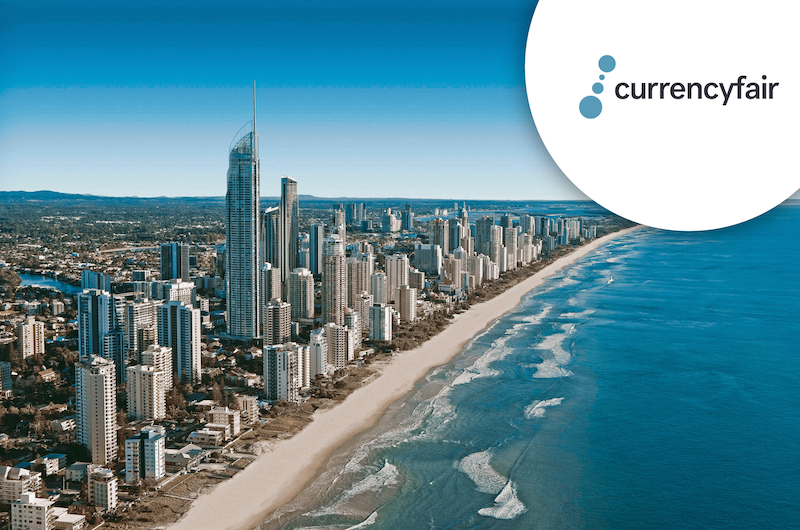
The Cost of Living in Australia 2020
Australia is an attractive destination for expats from across the globe. We look at the cost of living in Australia for a UK expat moving Down Under.
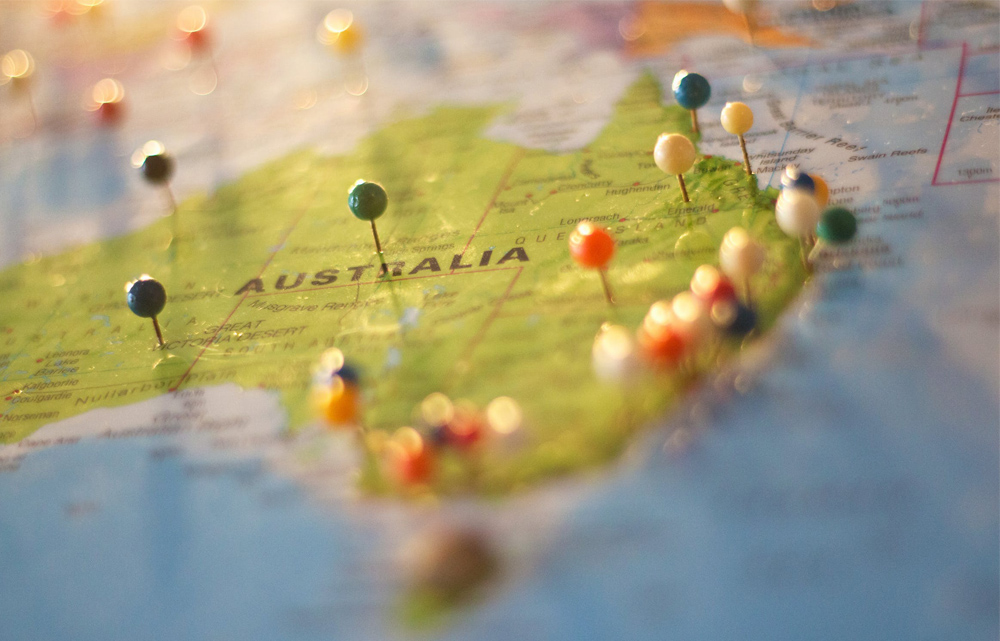
Money transfer companies compared: Australia (2021)
Choosing the right money transfer company can save you money on your international transfers. Compare the transfer times, fees and exchange rates of money transfer companies in Australia.
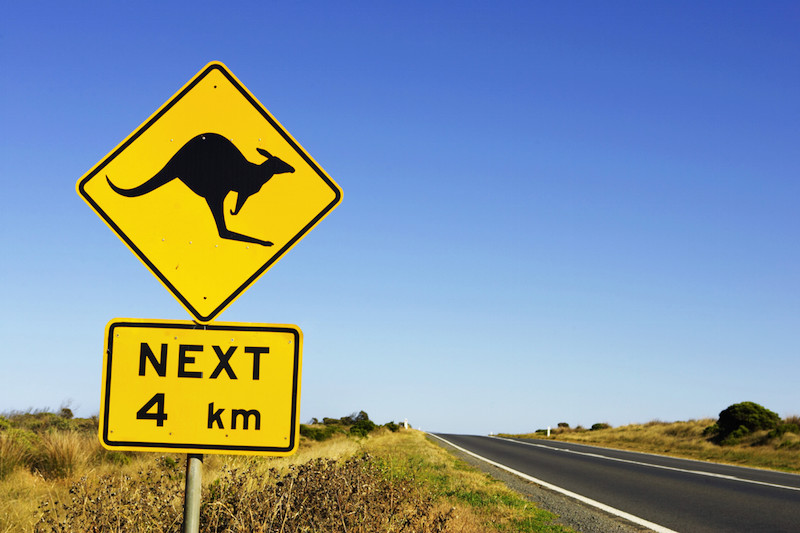
The best places to live in Australia
Whether you’re looking to emigrate with your family or partner, or just retire to Oz, our guide will help you find the perfect location for you.
Disclaimer
This information is correct as of 13 October 2021. This article is for general information purposes only and does not take into account your personal circumstances. This is not investment advice or an inducement to trade. The information shared is for illustrative purposes only and may not reflect current prices or offers from CurrencyFair. Clients are solely responsible for determining whether trading or a particular transaction is suitable. We recommend you seek independent financial advice and ensure you fully understand the risks involved before trading. Leveraged trading is high risk and not suitable for all. Losses can exceed investments. Opinions are the authors; not necessarily that of CurrencyFair or any of its affiliates, subsidiaries, officers or directors.
